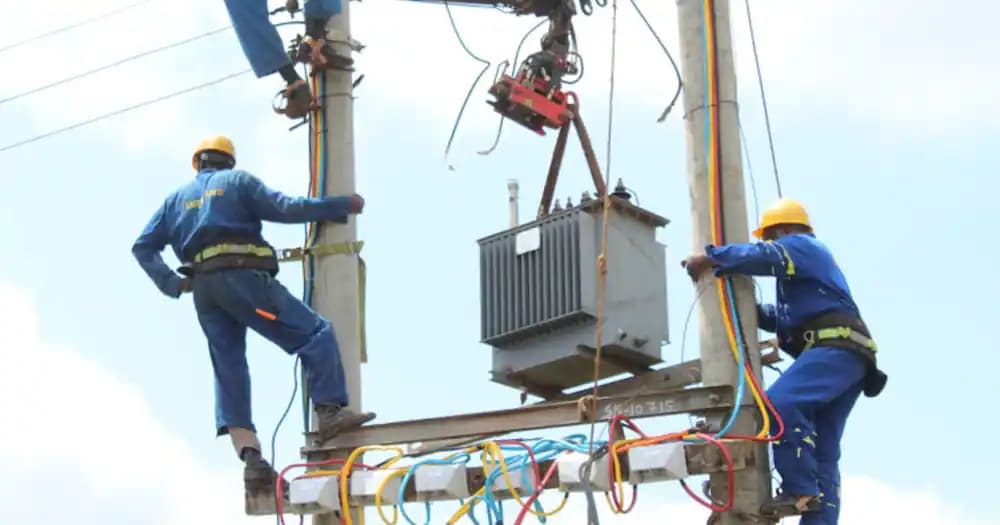We're loading the full news article for you. This includes the article content, images, author information, and related articles.
A Kitale court has jailed a man for ten years for destroying electricity infrastructure, a ruling authorities hope will deter vandals who cost Kenya's economy billions annually through widespread power disruptions.

A Kitale court sentenced a man to a mandatory 10-year prison term on Sunday, November 2, 2025, for the vandalism and theft of Kenya Power and Lighting Company (KPLC) transformers, a landmark ruling in the nation's escalating fight against economic sabotage. Joel Nyongesa was convicted by Kitale Chief Magistrate Samuel Mokua after pleading guilty to multiple counts under the Energy Act of 2019. His co-accused, Charles Luchivia, pleaded not guilty and awaits trial.
The court found that between August 20 and August 24, 2025, Nyongesa and others at large willfully vandalized three transformers in the North Rift region valued at KSh 5 million. He was also convicted of stealing copper windings and transformer oil worth KSh 900,000 and attempting to vandalize another transformer valued at KSh 2 million on August 17, 2025. In his judgment, Magistrate Mokua highlighted the severe impact of such crimes, noting they cause massive financial losses to KPLC and disrupt essential services for homes, schools, and hospitals. Nyongesa was sentenced to three separate 10-year terms for vandalizing energy infrastructure, stealing energy equipment, and attempted vandalism, with the sentences to run concurrently.
The Kitale conviction is not an isolated incident but a reflection of a persistent national security and economic challenge. Vandalism of critical infrastructure, particularly KPLC transformers, costs the Kenyan economy billions of shillings annually through replacement costs, lost business productivity, and frequent power outages. According to a report tabled in Parliament, Kenya Power lost 110 transformers worth KSh 137 million between September 2023 and August 2024 alone. In 2023, the utility company lost 365 transformers valued at KSh 328 million. These figures only represent the direct replacement costs; the wider economic damage from lost productivity and stalled business activity is estimated to be significantly higher.
The primary motive for this destruction is the lucrative black market for copper windings and transformer oil. The toxic oil is reportedly sold to operators of roadside food stalls for frying, while copper components are sold to scrap metal dealers. Kenya Power's Managing Director, Dr. Joseph Siror, has previously stated there is a direct link between the scrap metal trade and the spike in vandalism cases. This connection prompted a government moratorium on the scrap metal trade in January 2022, which led to a temporary halt in vandalism incidents. However, cases surged again after the ban was lifted.
Kenya has strengthened its legal framework to combat this form of economic crime. The Energy Act of 2019 stipulates severe penalties for individuals caught vandalizing energy infrastructure. Under Section 169 of the Act, offenders face a minimum fine of KSh 5 million or a prison sentence of at least ten years, or both. The judiciary has demonstrated a commitment to imposing these stiff penalties to create a deterrent effect. In November 2023, a Kisumu court sentenced a man to 20 years in prison for vandalizing four transformers.
In addition to the Energy Act, the government has sought to regulate the scrap metal industry through the Scrap Metal Act of 2015 and the Scrap Metal Rules of 2022. These regulations require licensing for all dealers and mandate them to keep detailed records of their suppliers to curb the trade in stolen materials. Despite these measures, enforcement remains a significant challenge, and KPLC continues to collaborate with law enforcement agencies, including the Directorate of Criminal Investigations (DCI), to investigate and prosecute offenders. As of May 2024, 166 cases related to infrastructure vandalism were pending in courts across the country.
The consequences of transformer vandalism extend far beyond KPLC's balance sheet, directly impacting the daily lives of Kenyans and the nation's development goals. Unplanned power outages disrupt businesses, leading to financial losses for small and medium-sized enterprises that cannot afford backup generators. Essential services such as hospitals, which rely on a constant power supply for critical equipment, are put at risk. The destruction also poses a direct danger to the public, as exposed power lines can lead to electrocution.
The persistent threat of vandalism undermines efforts to achieve universal electricity access and compromises the reliability of the power grid, which is crucial for attracting foreign investment and driving industrial growth. In response, KPLC has resorted to costly measures such as mounting transformers higher on utility poles and exploring the use of oil-free transformers to make them less attractive to vandals. Authorities maintain that community vigilance and prompt reporting of suspicious activities are critical components in safeguarding this vital national infrastructure.
Keep the conversation in one place—threads here stay linked to the story and in the forums.
Sign in to start a discussion
Start a conversation about this story and keep it linked here.
Other hot threads
E-sports and Gaming Community in Kenya
Active 9 months ago
The Role of Technology in Modern Agriculture (AgriTech)
Active 9 months ago
Popular Recreational Activities Across Counties
Active 9 months ago
Investing in Youth Sports Development Programs
Active 9 months ago